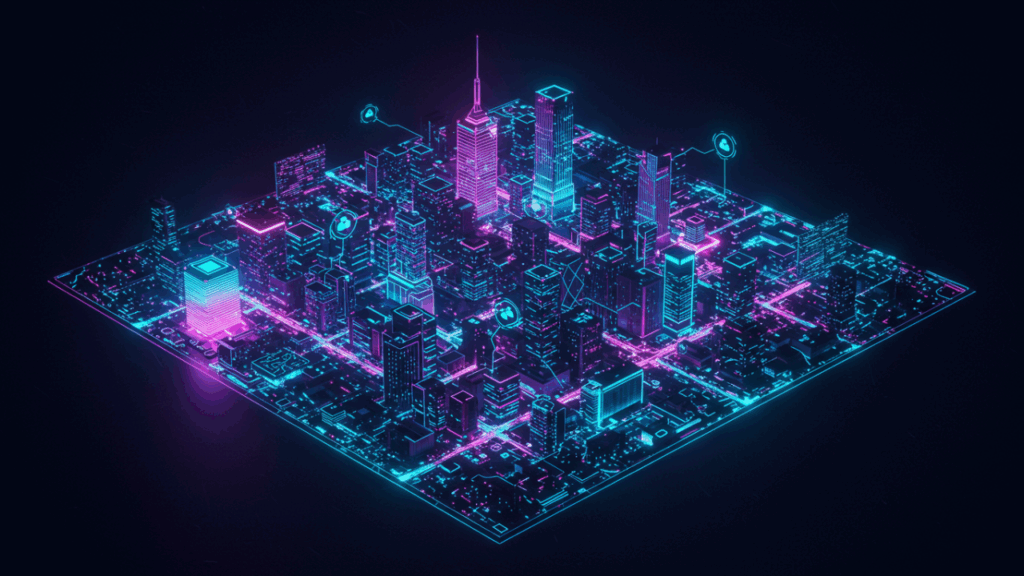Technology shapes every aspect of our lives, from how we communicate to how we solve complex problems. In 2025, with rapid advancements in fields like artificial intelligence and sustainable energy, understanding technology isn’t just for experts—it’s essential for everyone. This article explores the fundamentals of technology, its evolution, key applications, and practical ways to engage with it. Whether you’re a student, professional, or curious learner, you’ll find insights here to help you navigate and leverage technology effectively.
The Foundations of Technology
At its core, technology refers to the tools, systems, and processes created by humans to solve problems and improve efficiency. It’s not just gadgets; it’s the application of scientific knowledge for practical purposes.
Defining Technology Beyond Gadgets
Many people equate technology with smartphones or computers, but it’s much broader. For instance, ancient innovations like the wheel or fire-making techniques were early forms of technology. Today, it encompasses digital tools, machinery, and even biological engineering. To make this actionable: Start by auditing your daily routine—note how technology influences tasks like brewing coffee (using an electric kettle) or commuting (via GPS apps). This awareness can help you identify areas where adopting new tech could save time or resources.

The Role of Innovation in Technology
Innovation drives technology forward. It’s the process of turning ideas into reality through research, experimentation, and iteration. Consider how electric vehicles (EVs) evolved from niche experiments to mainstream options. If you’re interested in contributing, begin with small projects: Use free online platforms like Arduino for building simple circuits or GitHub for collaborating on open-source software. These steps provide hands-on experience and build a portfolio for tech-related careers.
Evolution and History of Technology
Technology didn’t appear overnight; it’s a timeline of human ingenuity.
Major Milestones in Technological Progress
From the Industrial Revolution in the 18th century, which introduced steam power and mechanized production, to the Digital Age starting in the mid-20th century with transistors and computers, each era built on the last. The 21st century brought the internet boom, mobile computing, and now, the integration of AI. A key insight: Understanding history prevents repeating mistakes, like overlooking ethical concerns in AI development, similar to early privacy issues with social media.
Lessons from Past Technological Shifts
Historical shifts teach us about adaptation. The rise of the internet disrupted industries like print media, but it created opportunities in digital marketing. Actionable advice: If your job is at risk from automation, upskill through platforms like Coursera or Khan Academy. Focus on evergreen skills like data analysis or coding in Python, which remain relevant across tech waves.
Key Areas of Technology Today
In 2025, technology spans diverse fields, each offering unique value.
Information Technology (IT)
IT involves managing and processing data using computers and networks. Cloud computing, for example, allows businesses to store data remotely, reducing costs. Practical tip: To secure your personal data, enable two-factor authentication on all accounts and use password managers like LastPass. For professionals, learning cybersecurity basics through certifications like CompTIA Security+ can open doors to high-demand jobs.
Biotechnology and Health Tech
Biotechnology merges biology with tech to create solutions like gene editing (e.g., CRISPR) for treating diseases. Wearable devices like smartwatches track health metrics in real-time. Actionable insight: Integrate health tech by starting with free apps like MyFitnessPal for nutrition tracking. If pursuing a career, volunteer for citizen science projects on platforms like Zooniverse to gain experience in data-driven biology.
Sustainable and Green Technology
With climate change pressing, green tech focuses on eco-friendly innovations like solar panels and energy-efficient buildings. Electric grids powered by AI optimize energy use. To contribute personally: Calculate your carbon footprint using tools like the EPA’s calculator and switch to LED lighting or public transport. For deeper involvement, explore DIY solar projects with kits from sites like Adafruit.
Future Trends in Technology
Looking ahead, several trends promise to redefine our world.
Artificial Intelligence and Machine Learning
AI is automating tasks and enabling predictive analytics. In everyday life, it powers recommendation systems on streaming services. Actionable: Experiment with AI tools like ChatGPT for brainstorming ideas or TensorFlow for building simple models. Ethical consideration: Always verify AI outputs for accuracy to avoid misinformation.
Quantum Computing and Beyond
Quantum tech processes information at unprecedented speeds, potentially revolutionizing drug discovery. While still emerging, it’s worth watching. Start learning via free quantum simulators on IBM’s Qiskit platform.
The Internet of Things (IoT)
IoT connects devices for smarter homes and cities. Smart thermostats like Nest learn your habits to save energy. Tip: Secure your IoT devices by changing default passwords and using VPNs to protect privacy.
Challenges and Ethical Considerations
No discussion of technology is complete without addressing downsides.
Privacy and Security Issues
Data breaches are common, so prioritize encryption and regular software updates. Actionable: Conduct a yearly digital audit—review app permissions and delete unused accounts.
The Digital Divide
Not everyone has equal access to tech. To help bridge this, support initiatives like donating old devices to programs such as Computers with Causes.
Ethical AI Development
Ensure tech benefits society by advocating for transparent algorithms. If you’re in tech, follow guidelines from organizations like the IEEE for responsible innovation.
FAQ
What is the difference between technology and science?
Science is the study of natural phenomena to gain knowledge, while technology applies that knowledge to create practical tools and solutions. For example, physics (science) led to smartphones (technology).
How can I start a career in technology without a degree?
Begin with self-paced online courses on platforms like edX or freeCodeCamp. Build projects, contribute to open-source, and network on LinkedIn. Entry-level roles like tech support often value skills over degrees.
Is technology making us less social?
It can, if overused, but it also connects people globally via video calls and social platforms. Balance is key—set screen time limits and prioritize face-to-face interactions.
What are the environmental impacts of technology?
Manufacturing devices contributes to e-waste and resource depletion. Mitigate by recycling electronics through certified programs and choosing energy-efficient products.
How do I stay updated on technology trends?
Follow reliable sources like TechCrunch newsletters, subscribe to podcasts like “Reply All,” or join communities on Reddit’s r/technology. Dedicate 15 minutes daily to reading.



